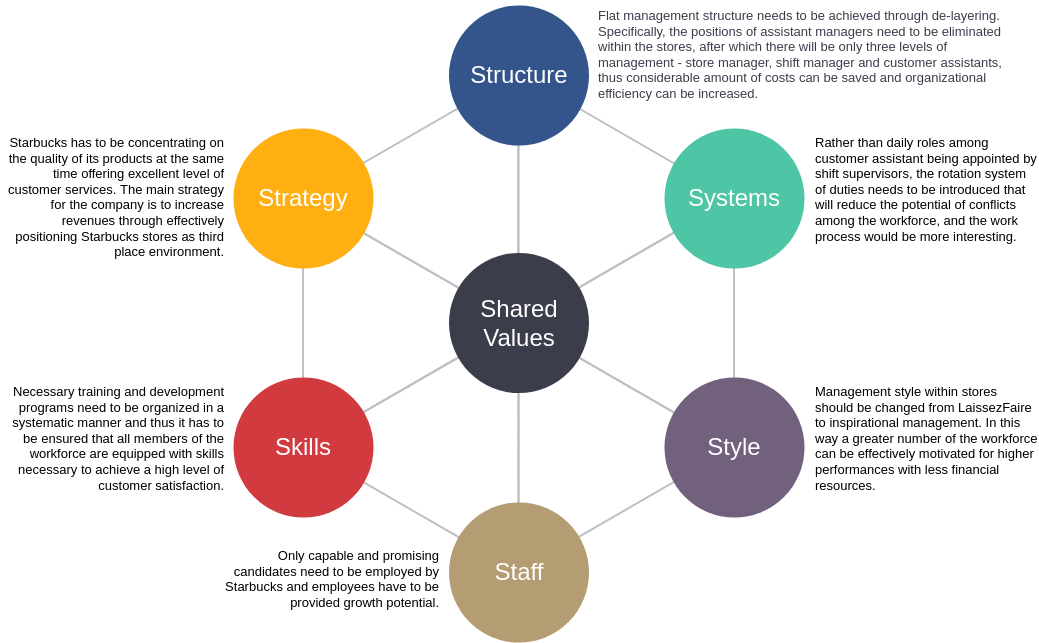
McKinsey 7S Model Comprehensive Guide Visual Paradigm Blog
The McKinsey 7 S model is a very good way of examining an organisation, and identifying elements that may not be contributing effectively to success. It is therefore a useful tool for using in a SWOT (Strengths, Weaknesses, Opportunities, Threats) analysis, to identify the strengths and weaknesses. As with any tool, however, the analysis, and.

Uitleg 7S Model van McKinsey Modelmatig
Het 7S-model van McKinsey toepassen in je scriptie | Voorbeelden Gepubliceerd op 26 januari 2023 door Lou Benders . Bijgewerkt op 10 november 2023. Je gebruikt het 7S-model van McKinsey voor de interne analyse van een bedrijf. Je achterhaalt hiermee of de zachte elementen en de harde elementen in overeenstemming zijn.
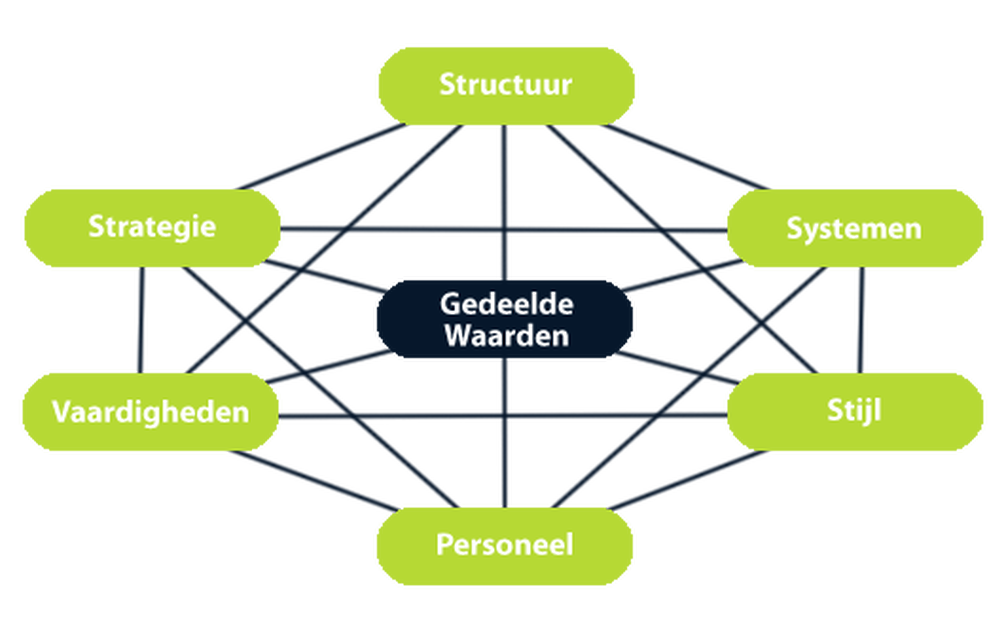
7Smodel Intemarketing
Het 7S model is een marketingmodel waarmee je op gestructureerde wijze de interne situatie onderzoekt. Het model bestaat uit zeven factoren: Systemen Strategie Shared values (gedeelde waarden) Staf (personeel) Stijl van het management (leiderschapsstijl) Skills (vaardigheden) Structuur De bedenkers zijn Antony Athos en Richard Pascale.
Hoe maak ik een interne analyse voor mijn marketingplan?
7s Model Vaardigheden. Je wilt weten op welke wijze je als organisatie onderscheidt van de concurrentie en hoever de vaardigheden onder collega's van elkaar verschillen. Dit zijn voor beide partijen de USP, de Unique Selling Point, maar anders gezegd de UBR: Unique Buying Reason, omdat klantvoordeel belangrijker is dan een verkoopargument.

7s Model Uitgewerkt Voorbeeld
McKinsey's 7S-model bestaat uit het 7-stappenplan: Significante waarden (shared values), Strategie, Structuur, Systemen, Staf (personeel), Stijl van het management en Sleutelvaardigheden. 7S-model McKinsey: uitleg van het 7-stappenplan We doorlopen de 7 factoren uit het 7S-model van McKinsey en leggen hieronder uit waar elke S precies voor staat.
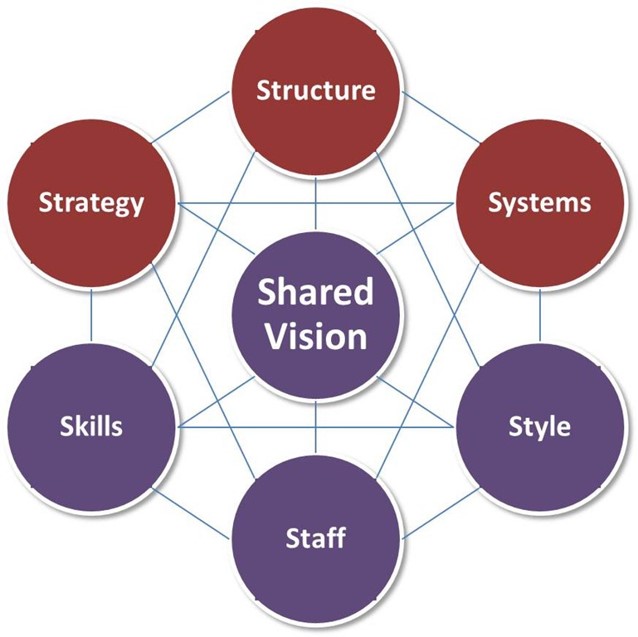
7s Model Uitgewerkt Voorbeeld
Het 7s model is een methode om de belangrijkste element binnen je organisatie te beschrijven. Aan de hand van de 7 stappen breng je duidelijk en overzichtelijk in kaart hoe jouw organisatie in elkaar steekt. Deze informatie kan je vervolgens gebruiken om organisatorische veranderingen door te brengen.
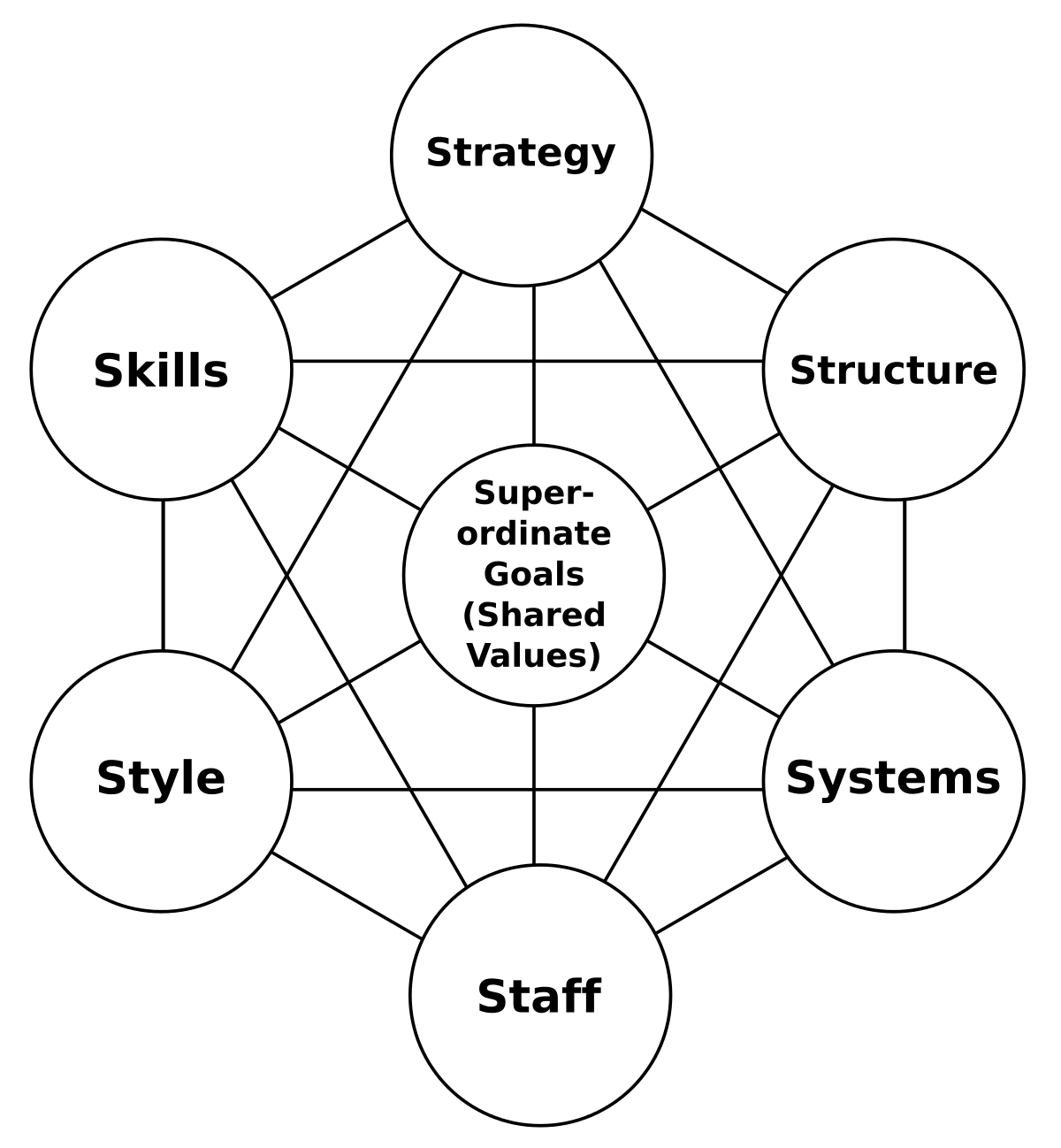
Mckinsey 7s Framework Example Advantages and Disadvantages of Mckinsey 7s 2023
The McKinsey 7-S Model evaluates organizational design by considering seven key elements: Structure, Strategy, Skill, System, Shared Values, Style, and Staff. Alignment and mutual reinforcement of these elements are crucial for successful organizational performance.
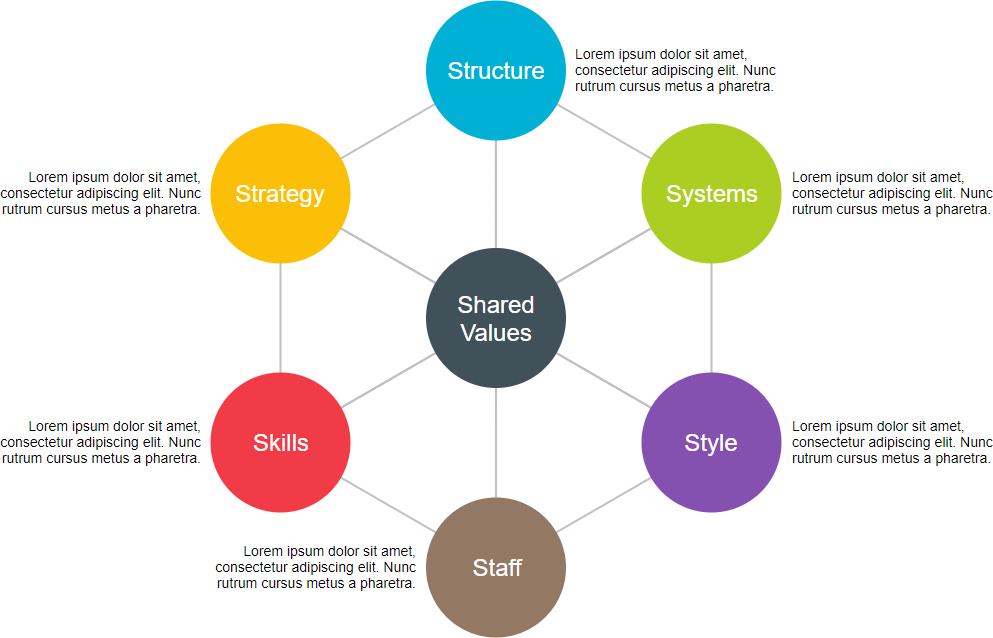
McKinsey 7S Model Measure How Well Your Organisation is Positioned?
Praktisch voorbeeld van het 7S model van McKinsey. Als praktisch voorbeeld geldt een commercieel opleidingsinstituut dat zich richt op werkenden, die een mbo-diploma willen behalen.. A Brief History of the 7-S ("McKinsey 7-S") Model - Tom Peters' blog post describing the origins of the 7S Framework. Schram, A. (2014).
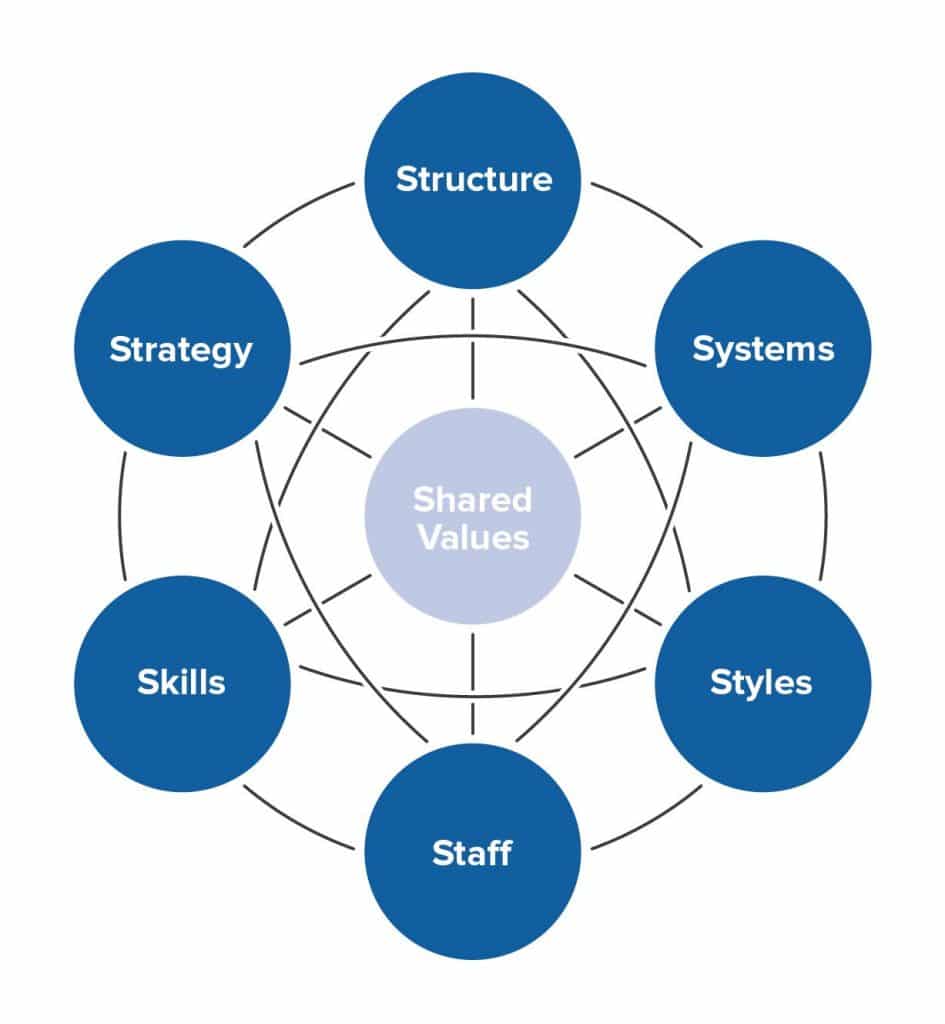
7s Model Uitgewerkt Voorbeeld
The McKinsey 7S Model is an organizational tool that assesses the well-being and future success of a company. It looks to seven internal factors of an organization as a means of determining.

7Smodel Managementmodellensite
The McKinsey 7S model is one of the most popular strategic planning tools . Businesses commonly use it to analyze internal elements that affect organizational success.
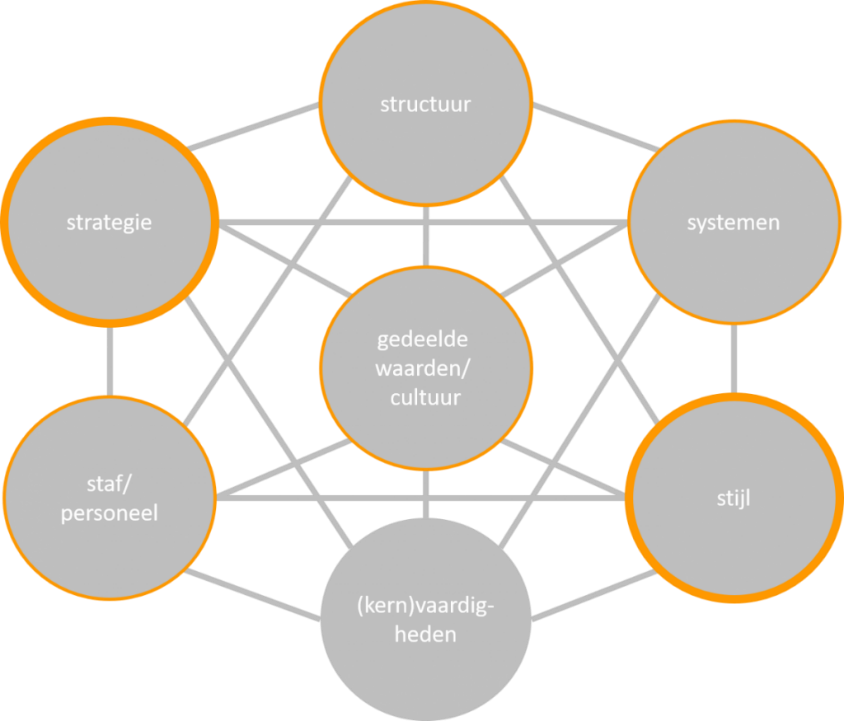
7Smodel Managementmodellensite
The Seven Elements of the McKinsey 7-S Framework The model categorizes the seven elements as either "hard" or "soft": The three "hard" elements include: Strategy. Structures (such as organization charts and reporting lines). Systems (such as formal processes and IT systems.)
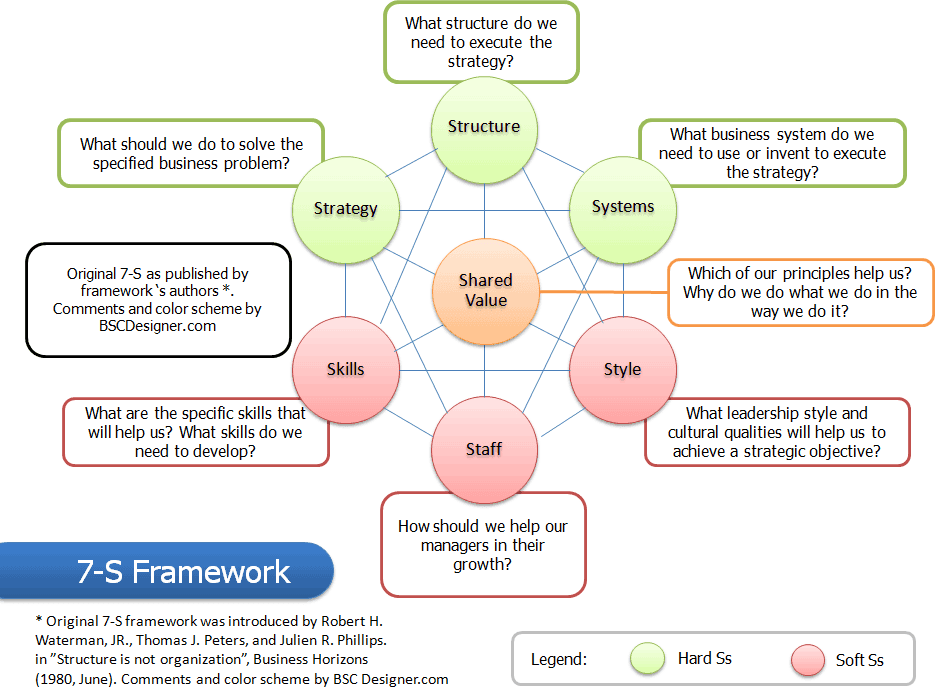
7S Framework Have Insights to Achieve Desired Results
What is the McKinsey 7S Model? The McKinsey 7S Model refers to a tool that analyzes a company's "organizational design." The goal of the model is to depict how effectiveness can be achieved in an organization through the interactions of seven key elements - Structure, Strategy, Skill, System, Shared Values, Style, and Staff.

7S model maken? Volg eenvoudig de stappen Tips en uitleg
Het 7S-model is te verdelen in drie harde factoren: structuur (structure), strategie (strategy) en systemen (systems) en in vier zachte factoren: personeel (staff), leiderschapsstijlen (style), sleutelvaardigheden (skills) en gedeelde waarden (shared values).

7s Model Uitgewerkt Voorbeeld
The Seven Factors of the McKinsey 7S Model Strategy Strategy has a lot of different meanings. But in the McKinsey 7S model, strategy refers to the approach that a company uses to gain a competitive advantage and reach its long-term goals. A great strategy is one that is reinforced by a clear vision and mission as well as strong values.

7s Model Uitgewerkt Voorbeeld
What Is the McKinsey 7S Model? The McKinsey 7S Model is a change management tool for analyzing organizational design, alignment, and performance. It offers a simplified method of identifying organizational gaps, inconsistencies, and conflicts. Additionally, it is useful for mapping out various types of change initiatives in complex environments.

7s Model Uitgewerkt Voorbeeld
Wat is het 7S model? Het McKinsey 7 S-model is in de jaren tachtig ontwikkeld door Tom Peters en Robert Waterman, die destijds bij adviesbureau McKinsey werkten. Het model onderzoekt de interne factoren van de organisatie die het succes kunnen beïnvloeden.